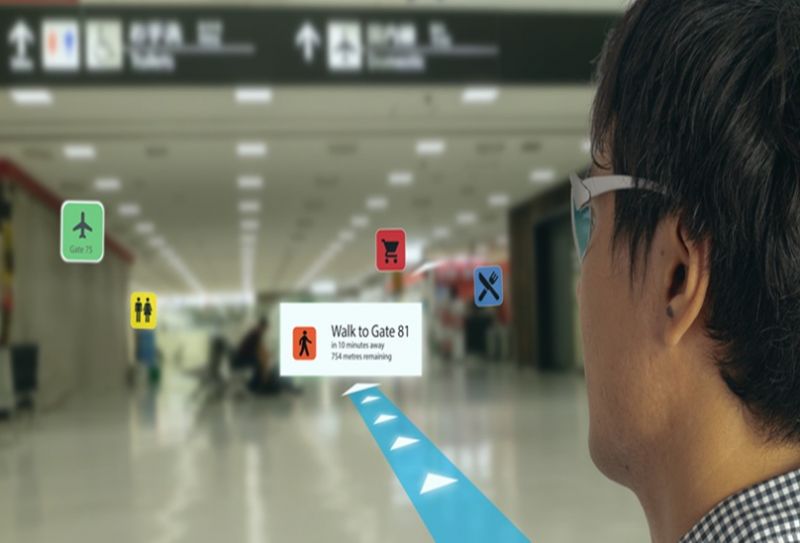Eintracht Frankfurt have broken through.
Their revenues are soaring, their recruitment is the envy of Europe and, after victory over Freiburg on Saturday, they have qualified for the Champions League — the first time they have reached the competition through the Bundesliga.
In 2016, the club had to win a relegation play-off. But in the six years that followed, they won the DFB-Pokal (2018) — the German Cup — and the Europa League (2022). A lot has happened in nine years and this new high point, secured with a come-from-behind 3-1 win at Europa Park, is just the latest high on their ascent.
But it has not always been that way. Frankfurt have been relegated three times in the 21st century. Before then, they spent the 1990s in financial turmoil, with their squad’s value obliterated by the effects of the Bosman ruling. And while today their Waldstadion, known as Deutsche Bank Park, is consistently full to its 58,000 capacity, and its fans produce one of the fiercest and most vibrant atmospheres in the country, these are relatively modern developments.
Axel Hellmann has lived the ups and downs. Today he is Frankfurt’s CEO and, from the offices in the stadium’s shadow, he describes a life that has been entwined with the club for as long as he can remember.
“I grew up in Eintracht Frankfurt,” he tells The Athletic. “My parents were both members too, and I remember my father taking me to my first game against Kaiserslautern in 1978.”
Hellmann has been a club member since he was three. He has been a spectator, an athlete and, at the end of the 1990s — a decade that saw Eintracht relegated from the Bundesliga for the first time in their history — he was part of a group of 20 supporters who founded what is now the Fanabteilung — the club’s fan department — in response to rising discontent.
That was his route to the executive board. Now, at 53, he has been in charge since 2021.

Frankfurt are backed by a vociferous support (Christof Koepsel/Getty Images)
A year later, in 2022, Frankfurt, then coached by Oliver Glasner, beat Rangers on penalties to win the Europa League and qualify for the Champions League for the first time in the club’s history.
In the minutes after Rafael Borre had scored with the final kick of that shootout, Hellman was left frozen in his seat, exhausted from the tension.
“Everyone was hugging me. Nancy Faeser, the federal minister of the interior and community, on one side. Bernd Neuendorf, the president of the DFB, was on the other. Aki Watzke (Borussia Dortmund’s CEO) was there too. But I was just… nothing.”
It was an emotional tussle between what victory meant for the club and what the moment was worth to him personally.
“I wasn’t on the pitch for about 45 minutes,” he recalls. “All the other officials went down, but I was just left sitting in my seat because it was such a personal moment and so full of memories. In 1980 (when Frankfurt had won what was then the UEFA Cup) I had been in the stadium with my father.”
The experience of being in the stadium and the notion of fandom itself has changed dramatically in the years since.
“In the 1970s, when I first went,” Hellmann remembers, “our average attendance was 28,000.
“In the 1980s, it was even lower. In the 1990s, it went up but football was not as popular. And the football and club culture were completely different because fans had no voice and no representation.
“There was just the club on the one side, with distinguished personalities from the region. And on the other side, there were fans going in and watching the games.”

Outgoing Eintracht president, Peter Fischer, and Hellmann earlier this year (Alex Grimm/Getty Images)
Most clubs in Germany were originally multi-sport organisations run by their members. In 1998, in recognition of burgeoning commercialism elsewhere in Europe, a concession was made to allow domestic clubs to remain competitive.
The 50+1 rule as it is known today, allows those clubs to run their football departments separately, as public limited companies, provided that 50 per cent of the voting rights — plus one share — remained with the original members.
Eintracht are currently 68 per cent member-owned and the relationship between those members and the club is a perpetual compromise. Ambition versus fan agency. Growth versus regionality. It is both a familiar tension in German football and one of the most interesting aspects of Hellmann’s role.
In 2023, the Deutsche Fussball-Liga (DFL), which operates the Bundesliga, proposed a €1billion (£840m; $1.1bn) sale of marketing rights to a private equity firm drew weeks of protest, with tennis balls thrown from the stands to disrupt games across the country. Eventually, the DFL yielded and abandoned the initiative, but Eintracht fans were among those not to have disrupted games.
Hellmann sees that as emblematic of a healthy relationship.
“It can be very difficult to control the majority of fans, especially with the more emotional topics and because credibility has to be built over a long period of time,” he says. “I’m from the fan scene, so I have more credit than most other executives in the Bundesliga. That is a big advantage — and the investor deal was an example of that.
“Before it became a public story, I told the fans what our position was (that the club would vote in favour of the investment deal).
“They were very sceptical and wanted some red lines drawn. They didn’t want the investors to have too much influence, nor for us to hold matches outside Germany. I took that back to the DFL level.
“So, because I was open before it appeared on the public agenda, it gave me credibility. They thought: ‘OK, if Axel says that there will be no backdoor influence from the investors, then we can believe that.’ And the fans in Frankfurt did not throw tennis balls. They were forced not to. Had they done so they would have lost credibility with me.

Tennis balls interrupt play at Bochum’s game against Union Berlin in December 2023 (Christof Koepsel/Getty Images)
“You can only have a workable long-term relationship if everybody knows what to expect from the other side. As an official or manager, you don’t interfere with fan culture. That is not our business.
“But it’s not their business to discuss with me the strategic approach of the Bundesliga. We have a sensitive mutual understanding of the respective roles we play at the club.”
Hellmann’s broader role is to help his club answer German football’s most difficult questions.
How do they compete with Bayern Munich and Borussia Dortmund, who both enjoy significant financial advantages, and in European football, which is dominated by clubs that benefit from external investment, from sovereign wealth funds, private equity firms, and billionaires?
Being a smart recruiter helps.
Markus Krosche, Frankfurt’s sporting director, is as highly regarded as anyone in Europe. Fredi Bobic, his predecessor, was just as well thought of. Combined, their work has helped define Eintracht as one of the best accelerators of talent in the world.
Last summer, defender Willian Pacho left the club for €40million having arrived for €13m. Two years ago, they paid Brondby €7m for Jesper Lindstrom before selling him to Napoli for €35m.
That is a typical pattern, but there have been outrageous successes. Randal Kolo Muani arrived on a free transfer in 2022 and was sold to Paris Saint-Germain for €95million 18 months later. In January 2025, Egyptian forward Omar Marmoush was sold to Manchester City for €85m, having also joined on a free from Wolfsburg the season before.

Marmoush bids farewell to Frankfurt in January (Kirill Kudryavtsev/AFP via Getty Images)
The future is just as bright. French forward Hugo Ekitike cost €16.5million in 2024 and is worth many times more today. Midfielder Hugo Larsson is similarly valuable, having cost just €9m. It’s no surprise then that, since 2020, Eintracht have recorded the highest overall transfer profit in the Bundesliga (€124m).
Hellmann is keen to stress the role of the environment in that achievement.
“We have one of the best coaching teams in the Bundesliga,” he says. “That’s really important, because we sign young players and the process of educating them, which is what is making us famous at the moment, involves a lot.
“When Omar Marmoush arrived, he wasn’t really a goalscorer, but our coaches worked with him mentally, physically, strategically, and tactically and technically on the pitch. Our team worked on all his abilities and we created a whole new player. It’s good education and good coaching.”
It’s also good business, because Eintracht’s ability to produce players has become a defining characteristic. This is what they do.
“We are open with our strategy when we talk to the players and to other clubs,” says Hellmann. “That’s the reason why we are well connected to other clubs, because they know we take that work seriously.
“We are an international club. We have the airport just around the corner. Frankfurt is an international city with 147 different nationalities. It doesn’t matter if you come from South America or Africa, you have your community here.
“But it’s also a good commercial story to tell. Frankfurt as an open city. Eintracht Frankfurt as a club, where there is performance and discipline. That’s important to tell Adidas when they become our new supplier next season.”

Eintracht’s Deutsche Bank Park (Alex Grimm/Getty Images)
The agreement with Adidas will be worth roughly €5million per season for the next five years, making it the richest manufacturing deal in the club’s history, helping already impressive financial performance.
In 2016, Eintracht recorded turnover of €109.30m. By 2024, that had risen to €390.5m.
The growth can be attributed to the relative strength of the Bundesliga’s broadcasting contract, to continued participation in European competition and, of course, the success of the transfer policy.
But there have been other drivers. Like many clubs in Europe, Eintracht compete — domestically and continentally — with rivals boasting true stars of the game, who are more attractive to new fans and commercial partners around the world.
What, then, is the practical approach to long-term growth?
“If you want to play permanently in European competitions, it is not a question of capital injections but of growing revenues,” Hellmann says.
“So, the No 1 for us as a club is how to open new revenue sources permanently. And since the revenue sources are quite limited in football, where does the additional money come from? The only thing you can is go totally digital.
“So that is what we did. We invested in our digital systems. In e-commerce, sales and marketing, as well as ticketing systems by Eintracht Tech, an entity that we founded six years ago to optimise our digital business models.”
Eintracht Tech is a wholly owned club subsidiary and, essentially, the club’s own software company.
By 2017, commercial inventory had been virtually exhausted. But even just in their domestic market, Eintracht were still competing against clubs who held advantages over them — Bayern and Dortmund, of course, but also RB Leipzig and their supporting network, Wolfsburg, Hoffenheim and Bayer Leverkusen, who (at the time) enjoyed exemptions from 50+1 and benefited from external investment and wealthy patronage.
Eintracht needed to create their own advantages. So, with many clubs outsourcing their e-ticketing and e-commerce to third parties, they decided to bring everything in-house, to create a virtuous cycle of information.

Eintracht’s Niels Nkounkou, Fares Chaibi and Elye Wahi celebrate with the Frankfurt fans in Freiburg (Markus Gilliar/Getty Images)
Timm Jaeger is Eintracht Tech’s CEO. He has worked for the Boston Consulting Group and BMW. He is also a lifelong Eintracht Frankfurt fan and needed little persuasion to lead the project or tackle its challenges.
“Before, we had no idea who our fans really were or how they interacted with us,” he tells The Athletic. “Our different departments were silos. The media team would decide the best content management solution, the merchandise team decided for the best e-commerce solution and then our ticketing department decided on the ticketing solution.
“If someone called our ticketing department to renew their season ticket, we would have no oversight — no idea that, perhaps, they had been a member for 10 years. If the same fan contacted merchandise to buy a shirt for the 10th year in a row, we had no idea either. It was a disaster.”
The scale of Eintracht Tech’s work goes far beyond replica shirts, tickets and content.
It has overall responsibility for the club’s eSports activities. Deutsche Bank Park is also full of collaborations with other technology companies. Collectively referred to as the Arena of IoT (Arena of Internet of Things), it includes the testing of demand-based irrigation systems, queue management information throughout the stadium, and autonomous vehicles.
And the company works beyond the boundaries of the club, too, with local government and businesses.
“We have to earn money to give our sports department, not take money away; we are a profit centre, not a cost centre,” Jaeger explains.
And the most visible part of that is what has been created around the club’s fans, with the previously disconnected departments now adjoined and optimised.
Since more and more sport organisations understand the importance of data and the necessity of optimising their revenue streams, Eintracht Tech has decided to offer their developed software solutions to other teams inside and outside football as a white-label solution.
“You cannot be innovative and talk about new revenue streams if you have no idea who your fans are,” Jaeger says.
“So we developed all of our software by ourselves. We developed our own fan app. We developed our own ticketing system, we developed our own e-commerce store, we developed our own content management system and we developed our own analytical tools to really be able to understand what each fan is doing with Eintracht Frankfurt.”

Ekitike celebrates victory on Saturday (Markus Gilliar/Getty Images)
It means that instead of fan data being passed into the hands of third-party companies, as it is in other sports leagues — in the NFL, via its partnerships with Fanatics or Ticketmaster, for instance — it is used within the club’s own ecosystem, to improve the experience for the club’s fans, but also to leverage the value of the fanbase.
If the club knows what content the supporters engage with, what events they attend, and what kind of products they buy — and has a proper oversight of that activity — then the value is clear.
In September 2023, the club announced a 12.3 per cent year-on-year rise in its marketing turnover and a 31.8 per cent annual rise in revenue from merchandising. Both were club records.
And the sharing of data inside the club is, from a fan perspective, preferable to the third-party alternative. Eintracht Tech does not use the data collected externally, even with commercial partners. A Data Protection Council also meets twice a year, allowing fans proper oversight of how their information is being used and what commercial aims the company is pursuing.
Again, stresses Jaeger, communication matters.
“We bring everyone together twice a year and tell them everything what we’re doing with the data, because we want to be 100 per cent transparent in what we’re doing,” he adds.
“This creates a lot of trust. Even though not all of our fans are in favour of football’s commercialisation, they understand that we have to improve on the financial side to be competitive on the pitch.
They obviously prefer this technical and data independence that Eintracht Frankfurt has.”
Independence, efficiency; these themes come up regularly with Hellmann. Asked to reflect on his club’s strengths, he talks of trust — allowing people to do the jobs for which they were hired.
“Those in high positions at our clubs are all the same in the sense that they have the freedom to make decisions on their own,” he says. “They are all competent. I’m not the guy who should be making changes to a press release or to what a shirt looks like.
“What I focus on is how we optimise the running of the machine. I’m listening to the engine.
“Is it working properly? Is there anything that it needs? This is what’s important. You shouldn’t waste your energies on issues where you have good people.”

Rasmus Kristensen and Eintracht will compete in next season’s Champions League (Markus Gilliar/Getty Images)
Hellmann still has his season ticket. One day, he says, when his time in club politics is over, he will cross back over to the other side of the Waldstadion, reclaim his seat from the friend who has been keeping it warm, and go back to being a fan. It will be easier. There will be less to organise and fewer tomorrows to worry about.
But that future can wait, because the present is too exciting.
“We are showing that big things are possible,” he adds. “If you see the pictures from three years ago, when we celebrated winning the Europa League, then just watch the people’s eyes. You could see that they were fulfilling a dream.
“I think this city has the ambition for more than what the club has given to them over the last 30 years. But maybe now is the time they can say: ‘Yes, we are back on the stage’.”
(Top photo: Sebastian El-Saqqa – firo sportphoto/Getty Images)









